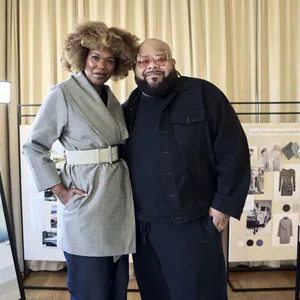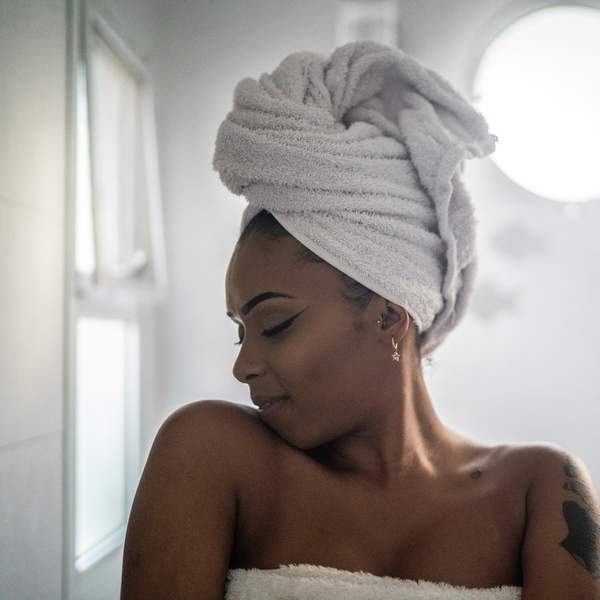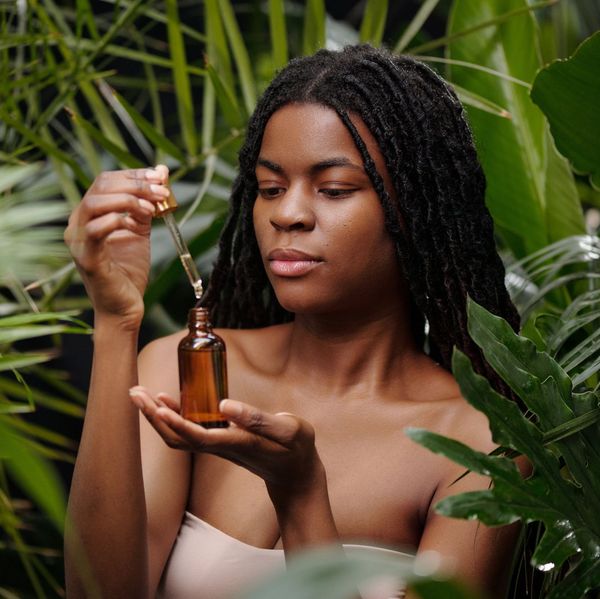Although plums are not the first fruit that I will grab out of the produce section, I must admit that I can get down with some from time to time. As I was trying to figure out why this seems to be the time of year when they pique my interest the most, I realized that they are in season between July and October (which means I tend to see them more in the store). Ah, so maybe that’s also why I’m such a fan of plum cobbler, plum salsa (hey, don’t knock it ‘til you try it!), and, as of this year, plum oil, too, right when the seasons are ready to…shift.
To tell you the truth, I’m not exactly sure how I got sold on plum oil — all I know is that since I’ve been using it (especially on my skin), I have been seeing a major difference. So, if you’re looking for a new oil to try as the weather prepares to get cooler in temperature, give me a minute (or two) to give you some solid reasons why you should definitely add plum oil to your natural beauty regimen.
What Is Plum Oil?
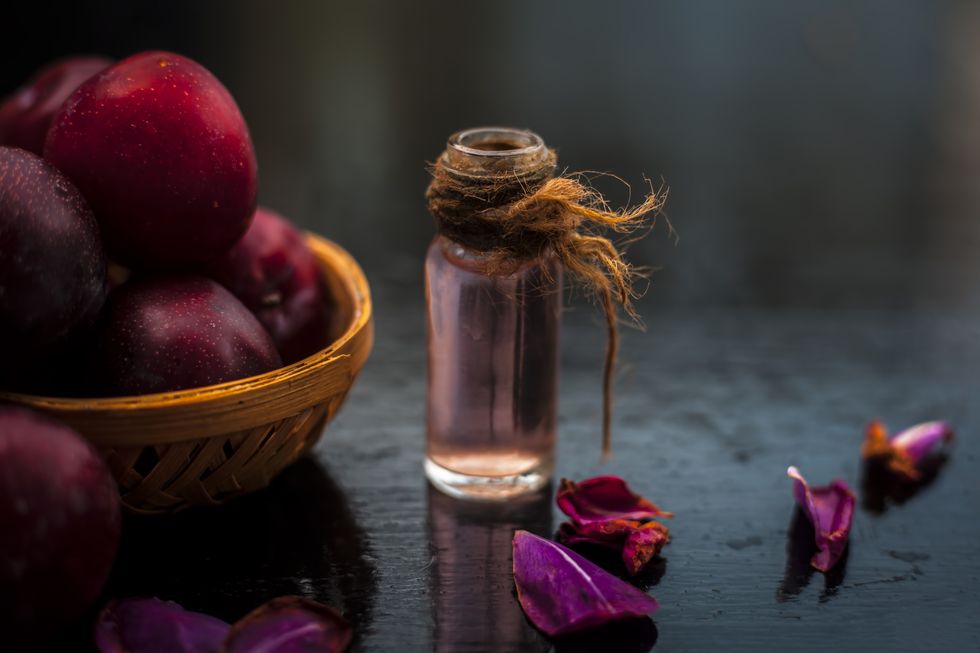
Getty Images
Okay, so plum oil is pretty much what you think it is: it’s oil that derives from the kernels of plums. And since plums contain nutrients like vitamins A, multiple forms of B, C, and E, potassium, copper, and magnesium, along with fatty acids, anti-inflammatory, and hydration properties, it’s fast becoming a must-have oil for many popular beauty and cosmetic brands.
Not only that, but many also consider plum oil to be a “gourmet oil” for cooking and baking because it has virtually no flavor, contains zero trans fat, and it has a high-temperature point for frying. Believe it or not, some people even make homemade ice cream with plum oil (no joke). You can check out a recipe here.
As far as where to purchase plum oil, let me just say off the rip that it’s not the cheapest oil in the world. Oh, but it is so worth it! As far as the brand that I personally use, it’s called Liquid Gold, and merchants on Amazon tend to sell a four-ounce bottle of it for like ten bucks (or 128 ounces for a little under seventy bucks). Walmart claims to carry a different kind of plum oil online (here); I’ve never purchased the brands that they carry before, but I’m just putting that out there as an FYI. I can totally vouch for the brand that I use, though — it’s light, deeply penetrating, and gives my skin a healthy glow.
That being said, let’s get into why I think plum oil is the ultimate beauty oil for the fall season and beyond.
How Plum Oil Benefits Your Skin
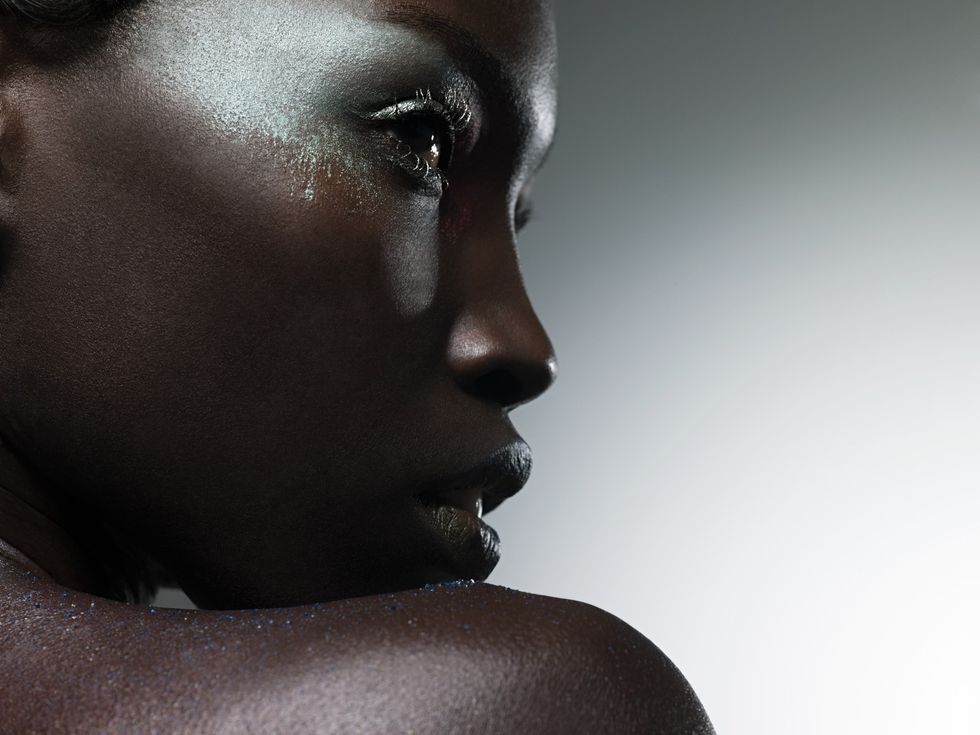
Getty Images
What first got me into plum oil was that I was looking for a sealant oil for my skin; meaning, I was looking for a lightweight oil that I could apply to my skin right when I got out of the shower so that I could “lock in” hydration and not have to apply any lotion (I haven’t used lotion in years at this point). What sold me on plum oil is what it did for my back. My skin is particularly dry back there, and so, between how moisturized my back felt along with how plum oil seemed to fade any discoloration I had without breaking out my skin in the process — yeah, that made it a fan favorite right out the gate.
I’m not alone. Plum oil is well-known for reducing oxidative skin stress, repairing damaged skin cells, balancing sebum production, and helping to heal acne and the marks it leaves behind. Plum oil also stimulates the production of collagen (so that your skin is able to look younger longer) and it doesn’t clog pores in the process. So, if you happen to have oily, combination, or acne-prone skin, this is the oil for you.
How Plum Oil Benefits Your Hair

Getty Images
Since plum oil won’t clog up your pores, this means that it also won’t clog up your hair follicles, which makes it a great oil if you’re looking for one that will help to prevent dry scalp or if you want a base for a hot oil treatment (which are always awesome because they can increase blood circulation to your scalp, revive dry and brittle hair and help to strengthen the roots of your hair over time).
Other ways that plum oil does wonders for your hair is if you happen to have tresses that are color-treated or you tend to apply heat on a semi-regular basis, the linoleic acid and vitamin E that’s in plum oil can add hydration to your hair, protect it from thermal heat and even reduce your chances of encountering split ends. Personally, although I’ve just recently been using plum oil on my own locks, I have noticed that my ends feel softer when I put some plum oil on them at night.
I’ve also used it as an oil that I’ve applied to my hair before shampooing it, and it’s so much easier to detangle as a direct result. Yeah, more and more, plum oil and I are becoming the best of friends.
How Plum Oil Benefits Your Nails
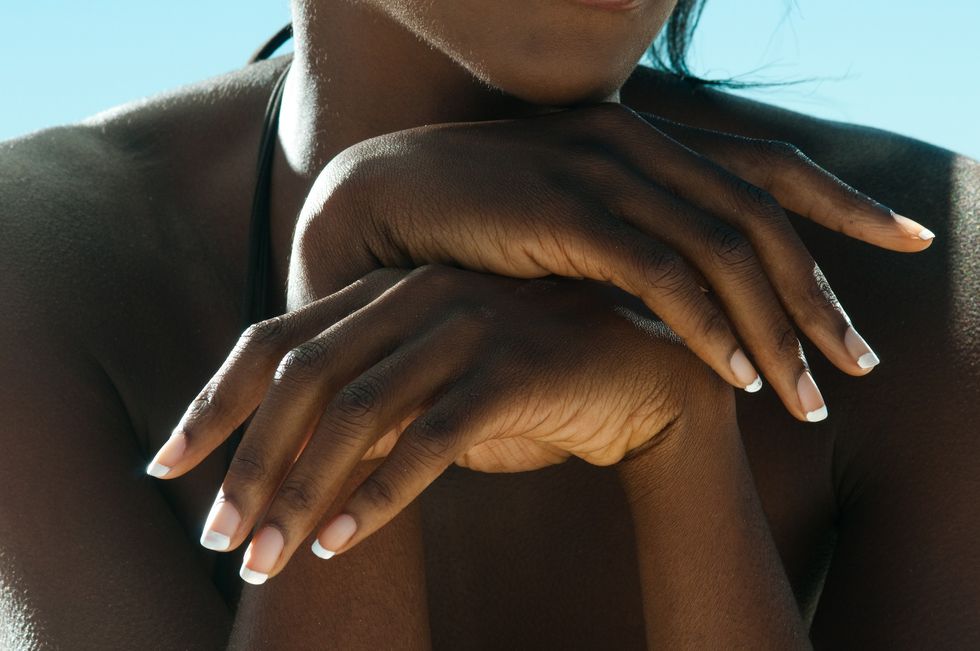
Getty Images
Something else that plums have in them is stearic acid. It’s a type of fatty acid that retains moisture, helps to reduce eczema-related symptoms, and reduces inflammation. On your nails, this all can be beneficial because the oil can help your nails from drying out, keep your cuticles soft (raggedy cuticles are the whole worst!), and help to keep your nails strong and flexible (so that they won’t be so prone to breakage). My recommendation would be to rub a bit of pure, warm plum oil on your nails and cuticles every other night before turning in.
_____
Now, I’m hoping that it goes without saying that if you’re allergic to plums, plum oil is something that you should take a pass on. For everyone else, though — if, like me, you can get down with snacking on a plum sometimes, why not take it up a notch and invest in some of this oil for the sake of your skin, hair, and nails? For the longest, my favorite beauty oil has been rosemary… Oh, but plum oil is gaining on it — and that is really saying something!
C’mon sis, try a bottle. If it doesn’t work out, hit me up, and I’ll let you know where to send it to me, chile (I’m not kidding either!). Something tells me that you’ll enjoy it, though. Just in time for fall.
Let’s make things inbox official! Sign up for the xoNecole newsletter for daily love, wellness, career, and exclusive content delivered straight to your inbox.
Featured image by FG Trade/Getty Images


